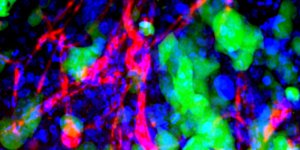| News / Science News |
Researchers uncover importance of aligning biological clocks with day-night cycles
Timing is everything. A fresh example supporting the old saying has been found in systems regulated by biological clocks. Research on circadian rhythms, internal 24-hour patterns that affect sleep-wake and metabolic cycles, has shown that timing is key for human health.

Research shows the importance of aligning the internal biological clock and external environment. Photo: UCSD
When activities and internal circadian clocks are out of step with the natural day-night cycle -- for example, in cases of irregular shift work, jet lag and poor sleep-wake habits -- we increase our risk of disease because of the mis-timing of important biological processes. But the genetics behind these mechanisms haven't been well-established.
Now scientists at the University of California, San Diego studying photosynthetic bacteria called cyanobacteria (blue-green algae) have identified the roots of a behavior that is regulated by the circadian clock.
The research provides a striking example of the importance of keeping the internal biological clock aligned with the external environment so processes occur at the right time of day.
"This paper demonstrates the importance of having internal biological time coincide with environmental time," said Susan Golden. "There are lots of human illnesses in which people are poorly aligned with their environment."
In the new study, the researchers identified the DNA uptake machinery in the cyanobacterium Synechococcus elongatus and discovered that the internal circadian clocks in their cells prevent DNA uptake early in the day and enhance the process early at night.
When darkness occurs at the time the cells' internal clock tells them it's dusk, DNA uptake and incorporation increase dramatically. In contrast, darkness at times that do not match the internal clock time fails to provide a boost in DNA uptake and incorporation.
"This research on biological clocks and how they control fundamental biological processes has important implications in human health and many other areas," says Mamta Rawat, a program director in NSF's Division of Integrative Organismal Systems. (National Science Foundation)
YOU MAY ALSO LIKE





